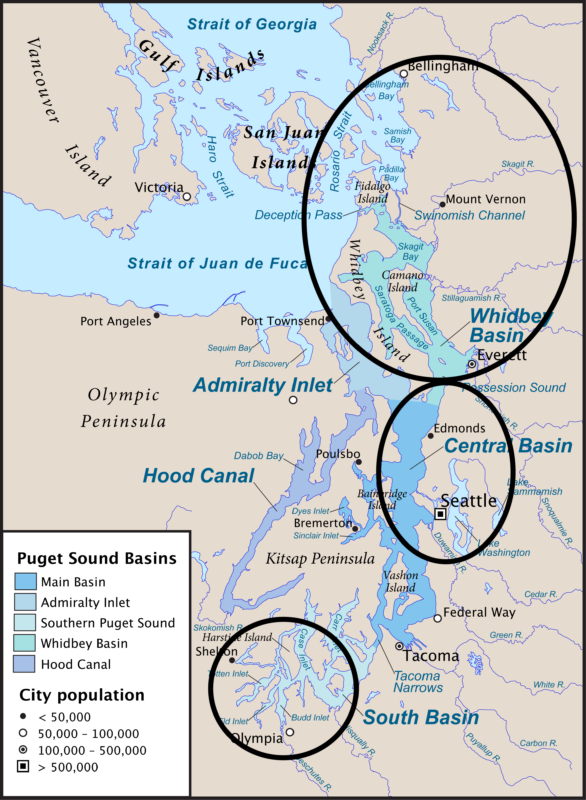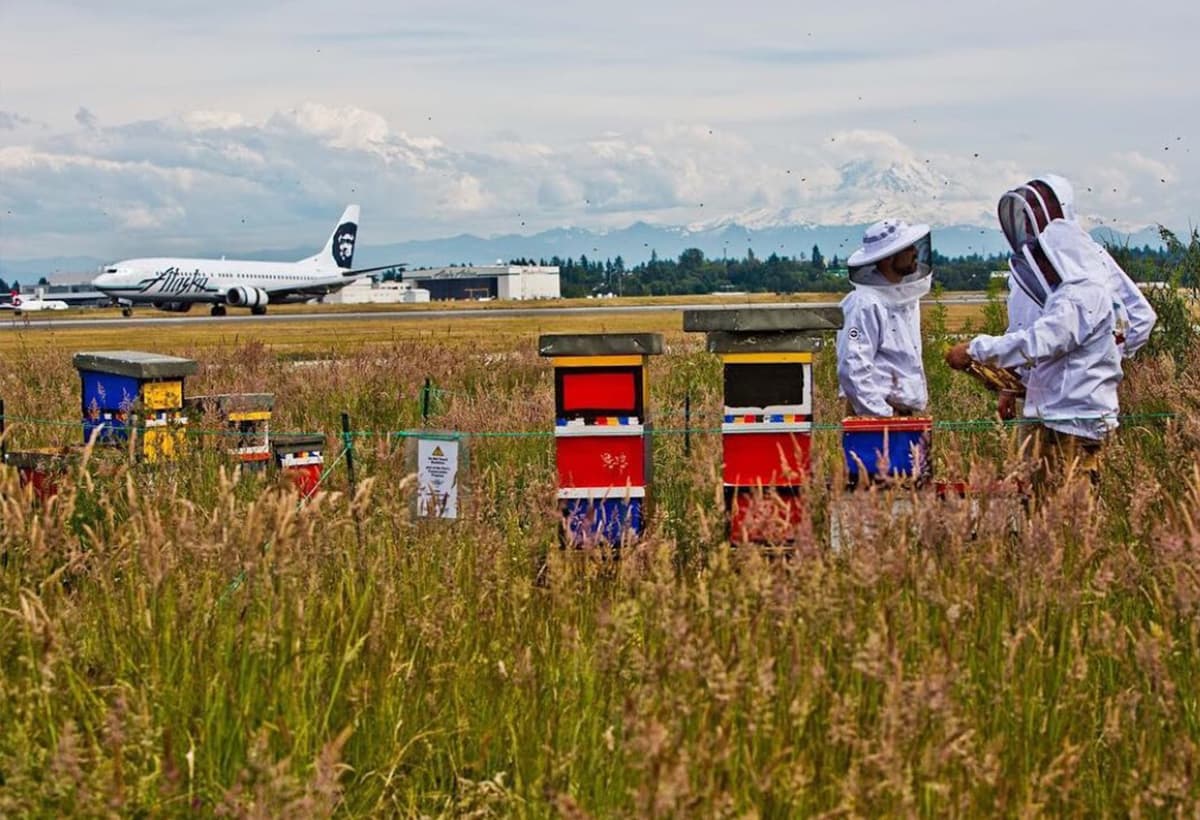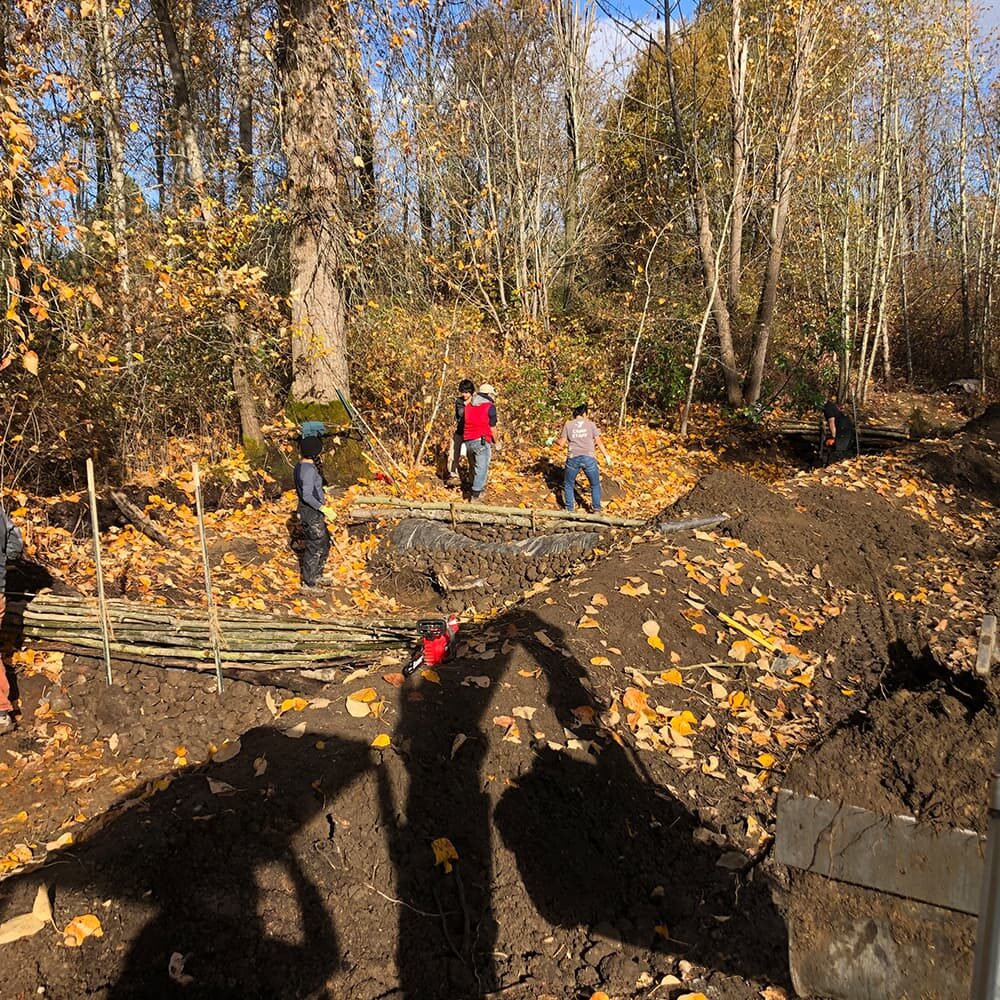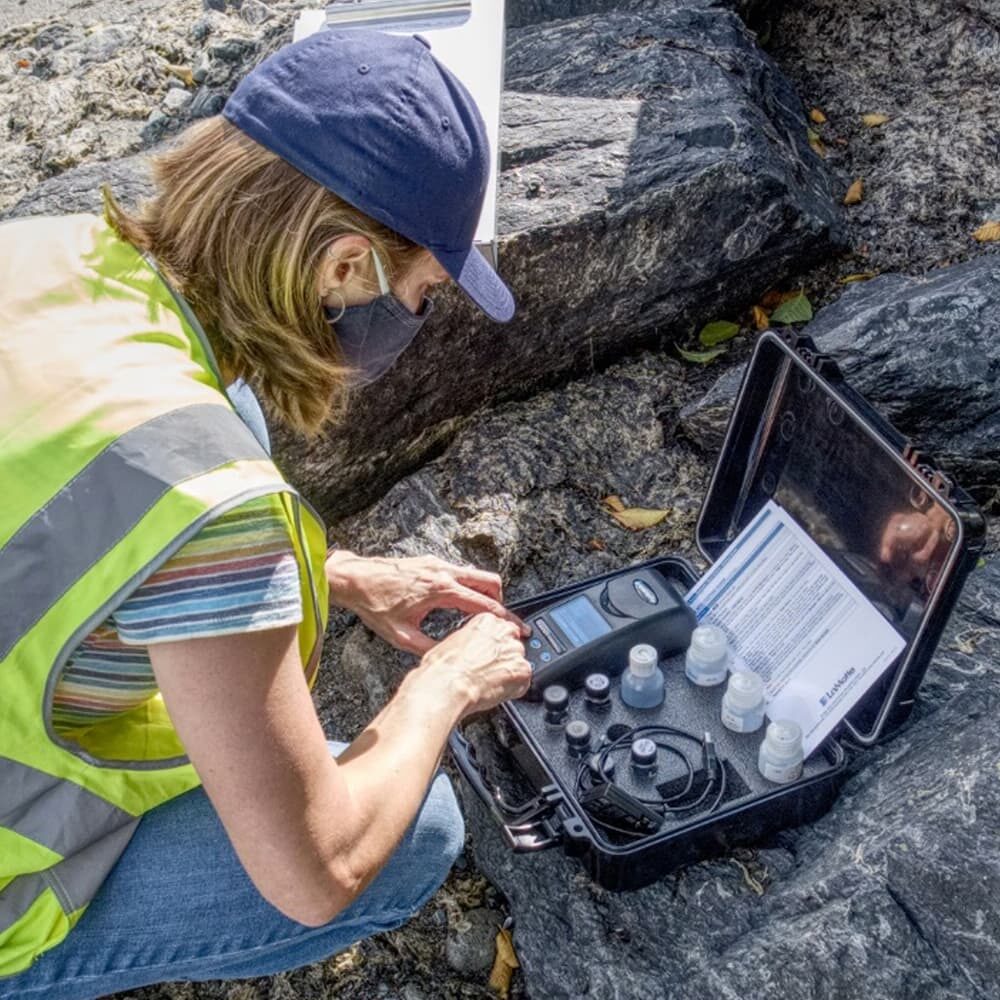Puget Sound Stewardship and Mitigation Fund
The Puget Sound Stewardship and Mitigation Fund’s goal is to mitigate past pollution runoff by supporting community-based efforts to protect or improve the water quality of Puget Sound.
The Fund was created by the Puget Soundkeeper Alliance (Soundkeeper), and it continues to be funded through enforcement actions brought by Soundkeeper and Waste Action Project, among others. These groups shared goal in bringing polluters into compliance with the CWA is to promote cleaner water bodies and healthier fisheries.
The Rose Foundation for Communities and the Environment welcomes proposals from small grassroots conservation and environmental justice groups, but if your organization is really new or very small we urge you to consider applying to our California Environmental Grassroots Fund instead.
Fund Details
Maximum Funding Request:
Up to $40,000
Important Dates:
This Fund runs in the Spring and Fall.
Important dates for Spring:
- Jan 2025 - RFP Announcement
- March 31, 2025 - Applications due
- June 2025 - Grant awards announced
Important dates for Fall
- Late July 2025 - RFP Announcement
- Sept 18, 2025 - Applications Due
- November 2025 - Grant awards announced
Let’s Connect:
Have questions or want to book a consultation? Connect with Timothy Bell, tbell@rosefdn.org.
Eligibility and Priorities
- The applicant must be a 501(c)3 organization, fiscally sponsored by a 501(c)3, or a governmental or tribal entity. Nonprofit colleges, universities, university clinics and graduate programs are eligible to apply, but university overhead is limited to 5% of grant award.
- The applicant must demonstrate the capacity to complete the proposed project, including experience in successfully conducting similar or otherwise related work in the past.

Water quality projects within the black circles on the map may be eligible to apply for the Puget Sound Stewardship & Mitigation Fund. This map is valid only for the Spring 2025 funding round.
Geographic Eligibility:
- South Sound, especially Budd Inlet and associated waters
- Central Sound between Seattle & Everett
- Skagit River watershed and associated reaches of Puget Sound
- North Sound & including parts of the Salish Sea and San Juan Islands
- The Rose Foundation has a strong preference towards supporting locally-based, community-led projects. If your organization is statewide or national in scope, or has a large multi-million-dollar budget, we encourage you to partner with a locally-based group in your proposal.
- Applications from environmental justice-oriented organizations are highly encouraged.
- Projects that involve impacted communities and are centered around principles of equity will be given preference.
- Projects designed to improve (or prevent degradation of) the water quality of Puget Sound and its watershed.
- Project activities include water stewardship, conservation, outreach and education, restoration, and watershed protection.
- Project proposals with strong community involvement and participation are especially encouraged.
Below is a list of common project types Rose has seen in the past several years. This list is not meant to be exhaustive but to give applicants an idea of projects Rose typically funds.
Water Quality Monitoring & Testing
- Community science or monitoring programs where data will be used to update an agency’s dataset, help guide water-related policy decisions, or inform a community or neighborhood plan. There should be a clear purpose for the data collection and a plan its use.
Watershed Restoration
- Project proposals may include some element of river, stream, creek, or other surface water improvement. This can include a wide variety of projects including removal of invasive species, planting native species in riparian areas, culvert removal, etc.
Green Stormwater Infrastructure Projects
- Multi-purpose projects that reduce stormwater pollution and provide community benefits like water for community gardens, workforce development, or improve public/open space.
- Becomes a springboard for community-driven programs that benefit both people and the Sound.
Emerging Toxic & Chemical Threats
- Projects related to toxic and chemical threats where the substance in question poses a clear public health danger but may not yet be well regulated, for example “forever chemicals” such as those found in flame retardants, tires, chemical cleaners, etc.
Public Outreach in Planning
- While we cannot support certain forms of advocacy such as legislative advocacy or litigation, we can support some (but not all) forms of public outreach related to public participation in administrative rulemaking related to water quality. Please contact the Rose Foundation Program Officer for more information.
Community Leadership & Capacity Building
- Develop capacity for community-led stewardship related to improving the water quality of California watersheds. This effort should lead to identifiable actions community members can take to improve water quality through your project proposal.
***A Note About Environmental Education Projects
- While we at Rose believe projects should include components to mobilize and educate community members, projects that are primarily education in nature with limited direct water quality impacts in the near term, are typically not strong candidates for this fund.
- When engaging students, projects must include identifiable, near-term actions to protect water quality.
The following activities or types of projects will not be funded:
- Endowment, land acquisition, capital improvement (unless proposed project directly improves water quality) or other similar projects.
- Grants to individuals.
- Grants to for-profit businesses.
- Grants for general operating support.
- Grants for projects in waters that are not listed in the geographic scope.
- Most grants are for a one-year period; however, you do not have to ask for a one-year grant. It is permitted to request a shorter or longer grant period if that is what you need.
- The maximum grant amount is $40,000 (even if requesting multi-year support).
- Organizations that have been funded may re-apply ONLY in the next cycle after their grant report has been submitted.
- After three consecutive years of funding, groups must wait two years before reapplying.
Steps To Apply
Please read these instructions carefully and follow them step by step.
Review Eligibility Criteria and Application Materials
Please read the eligibility criteria and priorities before starting an application.
Please read the following application instructions carefully and follow them step by step.
FAQ

Watch our recent How to Apply workshop intended for first time applicants and small organizations who do not directly engage in water quality efforts, but are invested in environmental justice work impacting communities in Puget Sound.
Yes and No. We support many projects that have an element of environmental education within the overall project work, however, environmental education should not be the primary focus of the project. That is, projects should focus on improvements to water quality or prevention of water contamination through “boots on the ground” restoration, improvements in environmental policy, etc. Environmental education, while important, does not meet our selection criteria in and of itself.
If your group is awarded a grant, you must provide a final grant report within one year of receiving the money, or before your group can receive additional funding.
Any signage or publicly distributed materials related to a funded project must display the following acknowledgement: Support for (Project Name) was provided by the Puget Sound Stewardship and Mitigation Fund, a grantmaking fund created by the Puget Soundkeeper Alliance and administered by the Rose Foundation for Communities and the Environment.
Meet Past Grantees
From grassroots community organizers to groups with nation-wide reach, meet the changemakers supported by Rose grants.
Funding Partners
The Puget Sound Stewardship and Mitigation Fund is supported by the citizen enforcement organizations Puget Soundkeeper and Waste Action Project. Any signage or publicly distributed materials related to a funded project must include the Rose Foundation and relevant partner organization’s logo.
Take the next step
Do you still have questions about this application process or need additional support from Rose Foundation staff? Here are some helpful resources.
Helpful Resources
Stay Connected
Change is happening! Receive updates on grantee successes, upcoming grants, and opportunities to make a difference. Join our community and be a vital part of the environmental justice movement.


